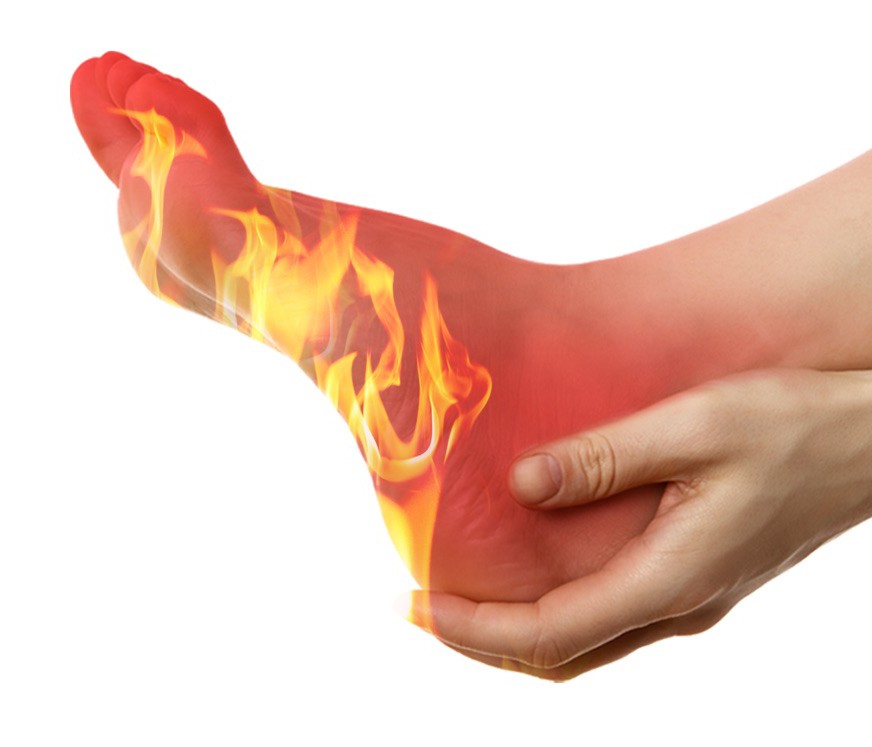What to Look For in a Burning Foot Treatment

Burning feet – the sensation of your feet being painfully hot – can be either mild or extremely intense
In some cases, burning foot may cause the feeling of pins and needles in the skin, or both, and with certain medical conditions, burning foot may also be accompanied with a dull pain, or even numbness. Most of the time, burning foot is just a temporary symptom. However, if left untreated, it can lead to serious foot problems.
Burning foot is one of the most common types of foot infections, affecting many people who are usually unaware of their condition. It occurs when the body produces too much natural oils in the affected area. This type of infection is generally caused by bacteria and fungal growth. The body produces too much natural oils because it is trying to protect itself, and the infection becomes more severe when the body cannot use its natural defenses.
Burning is sometimes mistaken as a yeast infection, as yeast growth does occur on the skin. But in actuality, this type of infection is caused by fungi. Fungus growth in the feet can cause the burning sensation, but it is not necessarily caused by the fungus.
While it's possible to treat burning foot with over-the-counter creams and ointments, these can only temporarily relieve the symptoms. The burning sensation may actually get worse, especially if you have an underlying condition that causes the infection. If your body is not producing enough natural oils, you may need to use a stronger antifungal. If the infection is due to poor hygiene, your doctor may prescribe antibiotics to help clear the infection out. However, antibiotics are not effective against fungal infection, as they do not target the fungus itself.
Doctors recommend resting your foot and keeping your foot as cool as possible during the day, to help prevent any excessive warmth from escaping. If you must wear shoes at work or in public, it's best to wear thick socks with closed-toed footwear so that they don't rub against your infected feet. Also, make sure that you regularly change your socks, washing them thoroughly before each use.
Burning foot also needs to be treated immediately if you've been exposed to an animal, such as a dog, that carries a disease that attacks the skin. If you suspect you've been bitten by a tick or other tick-borne illness, you should take some prescribed medicine immediately.

Even over-the-counter remedies won't completely treat burning foot, as there is no treatment for the fungus, so it will require a visit to your doctor to get a proper diagnosis. Your doctor will probably prescribe antibiotics.
If you suspect that burning foot is a more serious or life-threatening disease, or if you've had burning foot in the past, consult a doctor right away. Treatment can take several months and involves a long list of medications that can range in cost.
In extreme cases, the burning may spread and cover more than one area of your body
You might also find that the condition is constantly accompanied by pain and itching, leading to a bad odor coming from the infected foot.
Treatment options include topical creams and ointments, which are usually made to reduce the pain. For more severe cases, your doctor might suggest surgical procedures to remove the fungus, if necessary.
If you've tried a home treatment and still don't have any relief, you should first discuss your options with your doctor. He or she may be able to recommend another treatment option. Or, in most cases, you'll just have to wait until your condition improves on its own. and then consider trying a different home treatment.
These are some of the symptoms of burning and foot infections. They might not be all-inclusive, but they're a start.